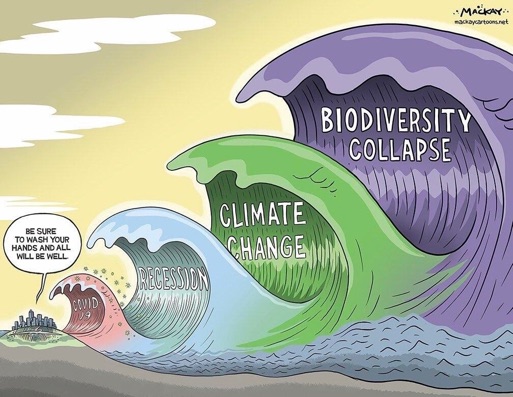Opinions
Download pdf file: Uncertainty.pdf
June 2022
From vanguard to rearguard
When econo-mystics
categorize reality as an uncertainty
More than fifty years ago, when FAO launched its “Indicative World Plan for Agricultural Development”, it was at the forefront of the thinking on the future of food and agriculture. It was a time when reflection on the future was grounded in concrete reality: physical and technical factors were at the centre (demography, income-related food demand evolution, land use, technology and productivity, use of inputs and equipment, etc.). This was the time of engineers that perpetuated the tradition established back in the 19th century.
From the 1980s onwards, with the implementation of structural adjustment and liberalization programmes, spearheaded by the International Monetary Fund and the World Bank, the ‘development pendulum’ swung towards the market. Economics (and in particular prices) became the main centre of interest. They were believed to be the most important drivers of change, the rest being a consequence. This period was one where the market was king, and policies were aiming to create illusory ‘perfect’ market conditions. This was the time of economists.

Nowadays, the well-established certainty of events that are experienced daily, like climate change, degradation of natural resources and pandemics, have put physical and technical reality back on the forefront [read], and the pendulum is again swinging to the other side. Those who wish to cling to a purely economic view of the world have to resort to a confused (and opaque) concept of unexplainable uncertainty that they fail (or avoid) to explicit, as it would unveil the cracks in their intellectual construct.
They somewhat capture it by employing the notion of statistical variability to measure risk, although they name it at times uncertainty1, i.e. the part of reality they deliberately choose to conceal. This part encompasses all the complex processes partly revealed by recent scientific work conducted, in particular, by platforms such as the IPCC and IPBES, as well as the political dimension of events, including the eventual changes in balance of power among actors of the sector [read here and here].
This stance is illustrated by the series of Outlook reports published annually jointly by the OECD and FAO [read] that provide countless quantitative results and myriads of graphs, illustrating an analysis disaggregated by regions, with the hope of giving them a scientific touch in the eyes of those who might not take time to delve into ‘details’, and of reassuring ‘markets’ that the world is stable [read], when ‘markets’ have, working for them, a host of specialists who cannot afford to ignore reality. At the vanguard in the 1990s, this econo-mystic attitude is now quite evidently part of a rearguard action desperately attempting to preserve the prime role of economics, while our times have become, at least to some extent, one where physical, biological and political science and law have gained an expanded explanatory power [read here, here, here and here].
-----------
Note:
1. It may be worth here reminding readers of the difference between risk and uncertainty. Risk is information-based and refers to the probability of a range of possible outcomes. Uncertainty, on the other hand, is doubt about the future, when the range of possible future events is unknown and their probability cannot be inferred from experience or modelling (Knight, F. H., Risk, Uncertainty and Profit. New York, NY: Sentry Press, 1921).
—————————————
To know more :
-
•IPCC, Summary for Policymakers Climate Change 2022 Impacts, Adaptation and Vulnerability, Working Group II Contribution to the Sixth Assessment Report of the Intergovernmental Panel on Climate Change, 2022.
Selection of past articles on hungerexplained.org related to the topic:
-
•Opinions: Sanctions Now Weapons of Mass Starvation by Anis Chowdhury and Jomo Kwame Sundaram, 2022.
-
•Private economic power in food systems and its new forms, 2022.
-
•Opinions: Back to reality - Reflections around the COVID-19 crisis by Materne Maetz, 2020.
-
•Protecting our health and environment - Is justice to substitute rules and regulations? 2019.
-
•Life plagued by human madness: we must change our paradigms, objectives and values, 2019.
-
•OECD-FAO Agricultural Outlook : short-sighted optimism…?, 2015.
Last update: June 2022
For your comments and reactions: hungerexpl@gmail.com



